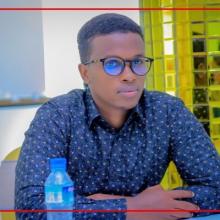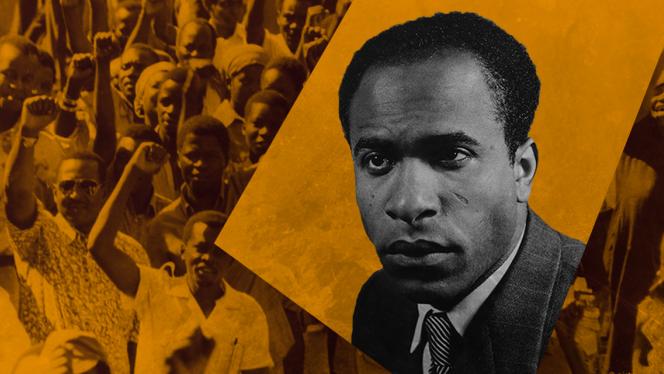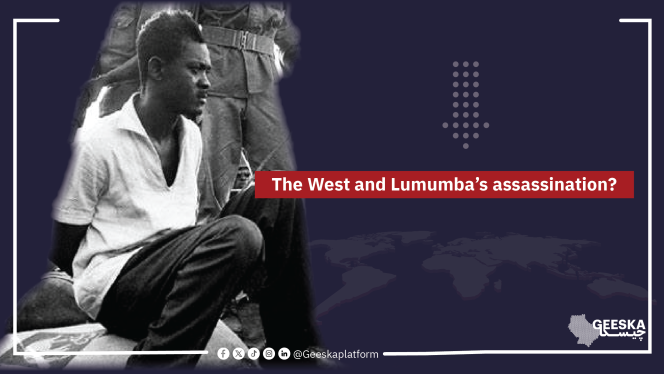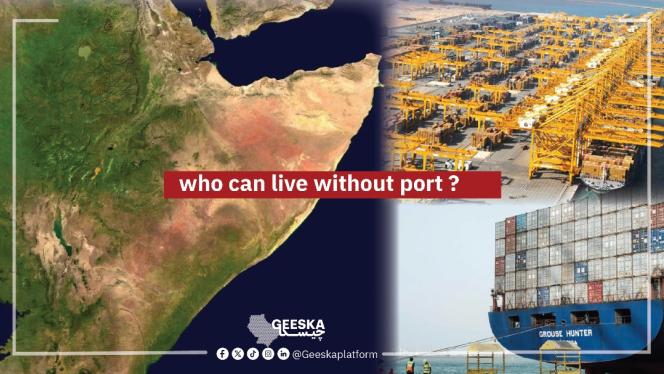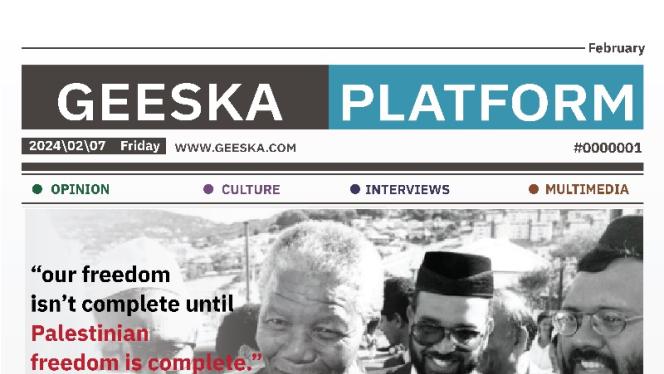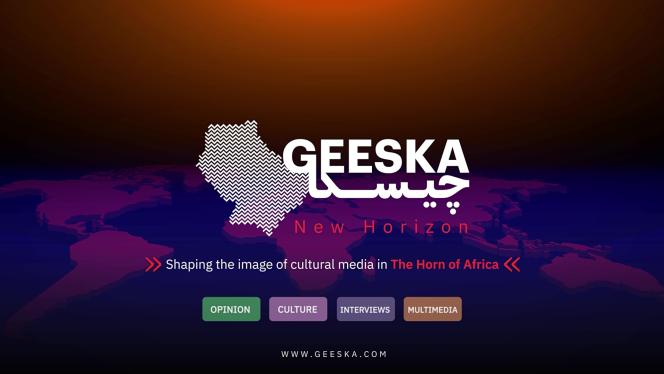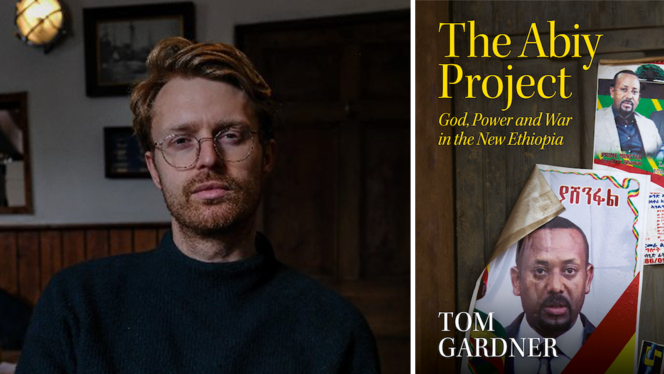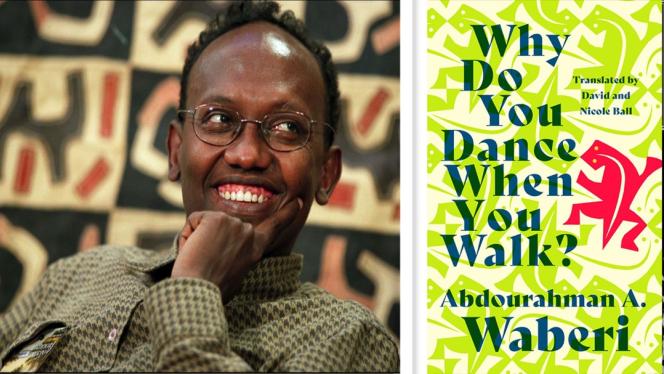Politics
Somalia and Somaliland need more good faith dialogue and an honest and amicable divorce, so that two independent Somali republics can live peacefully side-by-sideThe 64th anniversary of Somaliland’s independence was marked on 26 June this year. The former protectorate gained its independence in 1960, while Italian Somaliland gained its independence six days later, following the end of a period of Italian-administered UN trusteeship.
Ruto’s decision to withdraw his measure won’t stop a new democratic consciousness that has taken root among Kenya’s youth. Kenya has once again been shaken by popular protests which started on 18 June, triggered by the so-called finance bill that proposes increasing taxes on various everyday products and services, including the internet, fuel, bank transfers, private cars, and even bread in order to finance the country’s ballooning debt.
Too often analysis of political unrest across Africa neglects the economic factors driving it. That exonerates those who profit at the continent’s expense and doesn’t allow us to think more constructively about solutions. “The world never does anything for Africa,” says Khadidja Salah*, a Sudanese refugee. Salah travelled to Cairo for a medical visit before the war in her country began last spring.
South Korea is seeking critical minerals directly from African countries to protect its supply chains, but what are African countries getting in return? South Korea’s strategy towards African countries focuses on securing critical mineral resources essential for maintaining its industry, which accounts for 3% of global manufacturing output, ranking 6th globally after India.
Sudanese refugees stranded in Ethiopia’s Amhara region, face violence, intimidation and critical shortages of food and medicine. The Sudanese refugees in the Amhara region of Ethiopia have entered their second month of being besieged inside the Olala Forest after fleeing from the Komer and Olala camps due to the threat of attacks from Ethiopian armed militias.
Opinion
Somali political authors are too hagiographic in their writing on our leaders, and embolden their most authoritarian instincts
For Somalia’s parliament to be fit for purpose, it needs to cultivate a culture of respecting and relying on external expertise and be better connected with the demos. The purpose of a parliament can be summarised as the cornerstone of democratic governance: creating laws, representing the electorate, overseeing the government, and fostering a stable and just society. Parliaments provide a structured environment for political debate, decision-making, and accountability, ensuring that the will of the people is reflected in the governance of the country.
The Somali media landscape is failing in its fundamental public duty to challenge power and through that keep citizens informed. After riots and protests that claimed the lives of more than 35 people, the Kenyan president, William Ruto, decided to hold a roundtable interview with the media.
Ethiopia and Somaliland view the core transaction in the MoU as one that delivers on crucial concerns for both sides, but will the pact weather the diplomatic storm it has raised? Just hours before signing the Memorandum of Understanding (MoU) with Ethiopia’s prime minister Abiy Ahmed, Somaliland’s President Muse Bihi was in Djibouti for talks with Somalia, which the country’s president, Ismail Omar Guelleh, was brokering.
More needs to be done to end violence and discrimination against women across Somali contexts, and empowering us is crucial to creating a more just society The issues surrounding women’s rights, protection, advocacy, and gender inequality in the Somali context are sensitive and taboo. As a result, the majority of women are unable to speak out or address the consequences of gender-based violence (GBV).
Culture
Elleni Centime Zeleke was an Ethiopian scholar whose book, Ethiopia in Theory, challenged us to reconsider how we think about knowledge production using the Ethiopian student movement as an example
The work of Somali-Italian writer Igiaba Scego provides us with a fresh and critical lens on the interconnected histories of Italy and Somalia, and beckons toward more equitable futures The first time I encountered the work of Somali-Italian writer Igiaba Scego, I was studying in the US at Rutgers University, having moved from Italy to pursue a PhD in comparative literature. For a year, I had immersed myself in the writings and theories of postcolonial scholars and authors—from Edward Said to Franz Fanon, and from Tsitsi Dangarembga to Jamaica Kincaid.
The memorandum of understanding signed by Ethiopia and Somaliland has sparked a wave of polemical songs Music has always been one of the strongest means of assisting the liberation or control of people. It is also one of the most profound means for the expression of our humanity, our hopes, fears and aspirations, clearly shaping how people receive and react to events and to each other.
Siddharth Kara’s Cobalt Red unveils the hidden violence that sustains the mining sector in the DRC and highlights its role in the modern world from our phones and tablets to electric cars. Have you ever wondered where the raw materials for your phone battery and other rechargeable devices come from? They’re called lithium-ion batteries, and despite the name, only about 7% of the materials used in these batteries are lithium.
Somalis, with their ingrained love for communication, have eagerly embraced each new device to facilitate it, transforming it into an extension of their vibrant culture
Mohamed Kheir Omer recalls his memories of khalwa, the setting of his traditional Quranic education, in EritreaLike most Eritreans born into Muslim families, my first steps into education began in a Quranic school, or khalwa, in the late 1950s. This was long before George Bush’s so-called War on Terror in the early 2000s, after which these spaces came to be thought of as terrorist training grounds. This was also before Saudi-inspired Muslim groups who call themselves salafi began to emerge.
Ibrahim Osman reflects on the way Tizita, the Amharic music genre, deals with the themes of memory, longing and nostalgia.
“Word is not the privilege of some few persons but the right of everyone” — Paulo FreireTranslating Paulo Freire (1921-1997), who was the pedagogue of the oppressed, into the Somali language was a significant endeavor for me, that holds profound implications for education and empowerment within the Somali context, and there is a significant relevance to the Somali people and their unique socio-cultural and historical circumstances.
Multimedia
Why have I dedicated myself to this arduous task, you may wonder? Well, as Fanon himself eloquently stated in his treatise, “Each generation must discover its mission, fulfill it or betray it, in relative opacity.”
Stuart Reid’s new book, The Lumumba Plot, revisits Patrice Lumumba’s assassination, with strong insight into the role of the US in assassinating Lumumba and bringing down the government of one of Africa’s most iconic leaders.
Leaders across the Horn of Africa have touted the innumerable benefits of building ports for their people, putting them at the heart of their projects to develop their regions.
South Africa’s decision to take Israel to the ICJ on charges of genocide could cost his country, says former South African ambassador and anti-apartheid activist Ebrahim Rasool, but is an act of “enormous integrity”
Geeska is a platform that contributes to shaping the image of cultural media in the Horn of Africa.
Interviews
After reports named Abdulqadir Mumin as global leader of ISIS, Geeska interviewed expert Christopher Anzalone to discuss IS-Somalia’s growing influence in the IS network and examine the reports’ credibility. On 31 May, Africom (US Africa Command) issued a relatively routine statement regarding an airstrike it conducted on IS militants in Dhaardaar, a town located just under 100 km from Bosaso in Puntland.
Helmi Ben Meriem speaks to Geeska about his research on Nuruddin Farah’s fiction and non-fiction writing, as well as broader currents in Somali literature todayHelmi Ben Meriem is a Somali studies scholar of Tunisian origin whose research focuses on Somali-Anglophone literature.
Dr. Guleid Jama “Dafac” engages in a conversation with Geeska regarding his research on rights of children living in unrecognized states, focusing on Somaliland, and discusses the path forward.Children face a myriad of unique challenges that significantly impact their well-being and development. Some of the specific issues they confront include:
Tom Gardner, the Economist’s Africa correspondent speaks to Geeska about Ethiopian politics and his new book on the “Abiy Project”
I’ll tell you about the shifting desert around Djibouti–Abdourahman Waberi"Dad, why don’t you drive, cycle, skate or even ski?” Abdourahman Waberi’s daughter asked him one morning as they were on the way to her school in Paris’ 9th arrondissement. The reason was obvious as Waberi had a disability that discernibly impacted the way he walked, but she was laying the groundwork for a more prying question. “Kids are always curious and can be quite tough sometimes and that morning she bluntly asked me, ‘dad why do you dance when you walk?’”

















